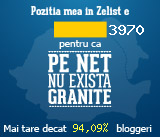Guest Post: Kintsugi
 by Dennis Maione
by Dennis MaioneWhen I was in high school, my father gave me his 1969 VW Beetle. Despite its age and the toll that time had taken, it was a great car. I especially loved it for its simplicity. Throughout my relationship with it, I rebuilt the engine twice, both times stripping it down to washers and bolts and then putting it back together, good as new, some of the parts cleaned up, some refurbished, and others discarded and replaced with brand new parts. Each time I put the engine together again, you’d never have guessed that a week earlier its parts had been strewn about my driveway in a disarray no one would have recognized as a car engine.
My body, however, is different. It wasn't designed to be taken apart, and there really are no parts that you can simply take out and replace—not “as good as new,” anyway. Each time I've been taken apart and laid out on an operating table with my bolts and washers all over the place, my surgeon cleaned me up, took out the broken bits, and then did his best to put me together again, as good as new. But each time, the process was more complex than with my Beetle. Each time, there were consequences to the action, and I was never again the same. Despite the skill of my surgeon, there were scars.
Scars: some were visible, like the permanent zipper on my abdomen, spoiling the potential for the perfect abs I’d always dreamed I’d develop some day. Other scars were deeper inside, scar tissue that invaded my body at its core. And, of course, there were psychological scars, which came from the trauma of the incident, the long shadow of death, and the realization that something had been taken from me which I’d never get back. Some of those emotional scars are still present, although not really evident until poked at by a mind trying to remember.
I recall sitting in a Starbucks as I put the finishing touches on my book, What I Learned from Cancer, sifting through medical records and remembering. I did a brief calculation about the spans of time in my cancer treatment and recovery, and I wrote this:
It had been 15 years, 3 months, and 14 days since cancer had been removed from my body. 5,584 days since my abdomen had been violated by the cut of a scalpel searching for the villain amidst the blood. And on that day, the sign reading, “5,584 days cancer-free,” came down and was replaced with one reading, “This body is out of order, again.”
And what was remarkable about the writing was that, 7 years after the incident it described, it drew tears. I sat at my table in the corner of Starbucks for half an hour, and I cried. I cried because that scar—the one I had not even known was there—hurt when I moved a certain way, and because, for a while, that pain would not subside.
 The Japanese have an art form called kintsugi, a word which literally means “golden joinery,” and a technique which, for centuries, has been used to repair broken ceramics. Like the human body, pottery cannot be put together “as good as new” once it has been broken; the cracks will always remain. But in kintsugi, gold is mixed with the bonding material, creating a glue which not only repairs the piece back to its original function but also celebrates the repair.
The Japanese have an art form called kintsugi, a word which literally means “golden joinery,” and a technique which, for centuries, has been used to repair broken ceramics. Like the human body, pottery cannot be put together “as good as new” once it has been broken; the cracks will always remain. But in kintsugi, gold is mixed with the bonding material, creating a glue which not only repairs the piece back to its original function but also celebrates the repair.My body will never again be “as good as new.” Cancer and surgery have made sure of that. But I have begun to celebrate my repair. I can look at my scars and celebrate my recovery from crisis as well as all that the journey has made and will continue to make of me. I can show off my golden joinery and believe that somewhere in the breaking, I have become something even better than new.
About the author:
Dennis Maione keeps bumping up against cancer. Diagnosed with a colorectal tumour as a student and young newly-wed, he thought his subsequent victory would set him up for a straight run at life. A decade later, however, he found out he carried a cancer gene. Fifteen years after his first diagnosis, the entrepreneur and father of three faced a recurrence, the second round exacting a higher toll.
Dennis has wrestled a strong enemy with grace, wit, and humor. What I Learned from Cancer chronicles cancer, genetics, and medicine, but mostly hope. Insights into the soul of a cancer survivor abound throughout the narrative, reflective essays, and conversations with a doctor. You’ll meet the community around Dennis, many physicians—good and bad—and heroes in the unlikeliest of places.
 In celebration of Cancer Awareness month, the author is offering promotional pricing on his book, What I Learned from Cancer. To buy an electronic copy of the book for $2.99, visit http://bit.ly/wilfc-ebook. Physical copies of the book are available at the Prompters to Life web store, where he offers free shipping on the softcover anywhere in the known universe (except the international space station).
In celebration of Cancer Awareness month, the author is offering promotional pricing on his book, What I Learned from Cancer. To buy an electronic copy of the book for $2.99, visit http://bit.ly/wilfc-ebook. Physical copies of the book are available at the Prompters to Life web store, where he offers free shipping on the softcover anywhere in the known universe (except the international space station).


















Niciun comentariu:
Disclaimer:
Comentariile cu conținut off-topic, cu tentă de jignire, amenințare, ofensatoare, injurii, sau cuvinte porcoase/profane sunt șterse automat. Comentați doar dacă ceea ce aveți de spus este relevant și aduce discuții/subiecte noi. Comentariile cu pseudonime sunt "implicit" sterse. Comentariile cu link-uri sunt moderate pe Disqus, pe Blogger, sterse. Daca doriti sa faceti publicitate la un site, rog sa ma contactati pentru o cotatie de pret, rezolvam. :)